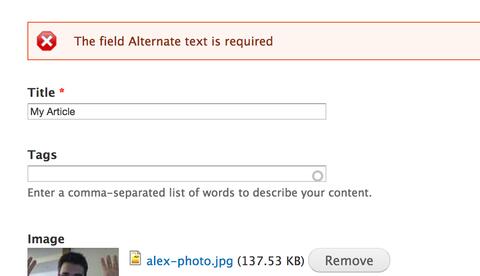Required Alt Text for Images in Drupal
Drupal 7 gives us the option to include an 'alt text' for each image field. The alt text is used by screen readers or when the image file isn't available. For some organizations with lots of authors, it's hard to get everyone actually using this alt text field. So, sometimes you want to make it required.



